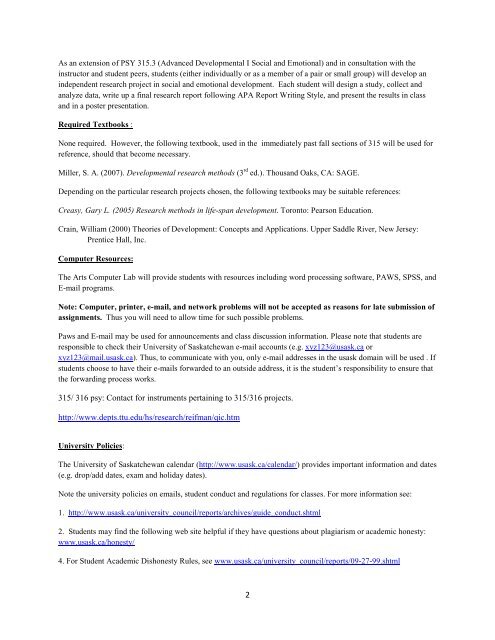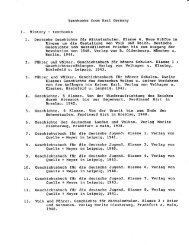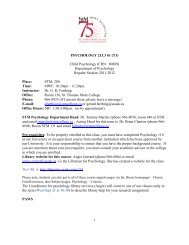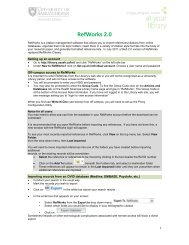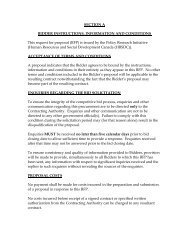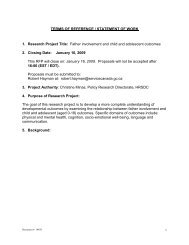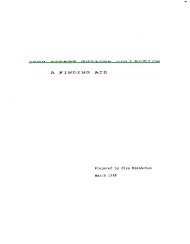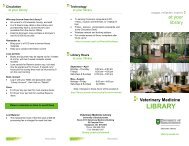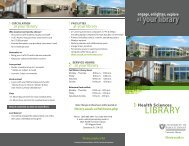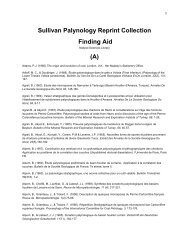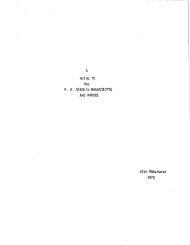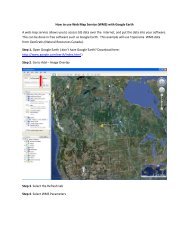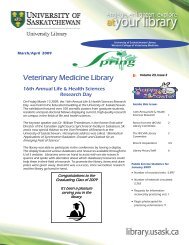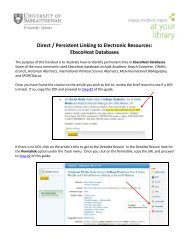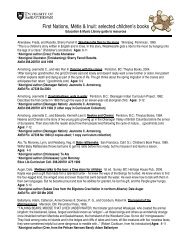St. Thomas More College, University of Saskatchewan Department ...
St. Thomas More College, University of Saskatchewan Department ...
St. Thomas More College, University of Saskatchewan Department ...
You also want an ePaper? Increase the reach of your titles
YUMPU automatically turns print PDFs into web optimized ePapers that Google loves.
As an extension <strong>of</strong> PSY 315.3 (Advanced Developmental I Social and Emotional) and in consultation with the<br />
instructor and student peers, students (either individually or as a member <strong>of</strong> a pair or small group) will develop an<br />
independent research project in social and emotional development. Each student will design a study, collect and<br />
analyze data, write up a final research report following APA Report Writing <strong>St</strong>yle, and present the results in class<br />
and in a poster presentation.<br />
Required Textbooks :<br />
None required. However, the following textbook, used in the immediately past fall sections <strong>of</strong> 315 will be used for<br />
reference, should that become necessary.<br />
Miller, S. A. (2007). Developmental research methods (3 rd ed.). Thousand Oaks, CA: SAGE.<br />
Depending on the particular research projects chosen, the following textbooks may be suitable references:<br />
Creasy, Gary L. (2005) Research methods in life-span development. Toronto: Pearson Education.<br />
Crain, William (2000) Theories <strong>of</strong> Development: Concepts and Applications. Upper Saddle River, New Jersey:<br />
Prentice Hall, Inc.<br />
Computer Resources:<br />
The Arts Computer Lab will provide students with resources including word processing s<strong>of</strong>tware, PAWS, SPSS, and<br />
E-mail programs.<br />
Note: Computer, printer, e-mail, and network problems will not be accepted as reasons for late submission <strong>of</strong><br />
assignments. Thus you will need to allow time for such possible problems.<br />
Paws and E-mail may be used for announcements and class discussion information. Please note that students are<br />
responsible to check their <strong>University</strong> <strong>of</strong> <strong>Saskatchewan</strong> e-mail accounts (e.g. xyz123@usask.ca or<br />
xyz123@mail.usask.ca). Thus, to communicate with you, only e-mail addresses in the usask domain will be used . If<br />
students choose to have their e-mails forwarded to an outside address, it is the student’s responsibility to ensure that<br />
the forwarding process works.<br />
315/ 316 psy: Contact for instruments pertaining to 315/316 projects.<br />
http://www.depts.ttu.edu/hs/research/reifman/qic.htm<br />
<strong>University</strong> Policies:<br />
The <strong>University</strong> <strong>of</strong> <strong>Saskatchewan</strong> calendar (http://www.usask.ca/calendar/) provides important information and dates<br />
(e.g. drop/add dates, exam and holiday dates).<br />
Note the university policies on emails, student conduct and regulations for classes. For more information see:<br />
1. http://www.usask.ca/university_council/reports/archives/guide_conduct.shtml<br />
2. <strong>St</strong>udents may find the following web site helpful if they have questions about plagiarism or academic honesty:<br />
www.usask.ca/honesty/<br />
4. For <strong>St</strong>udent Academic Dishonesty Rules, see www.usask.ca/university_council/reports/09-27-99.shtml<br />
2


